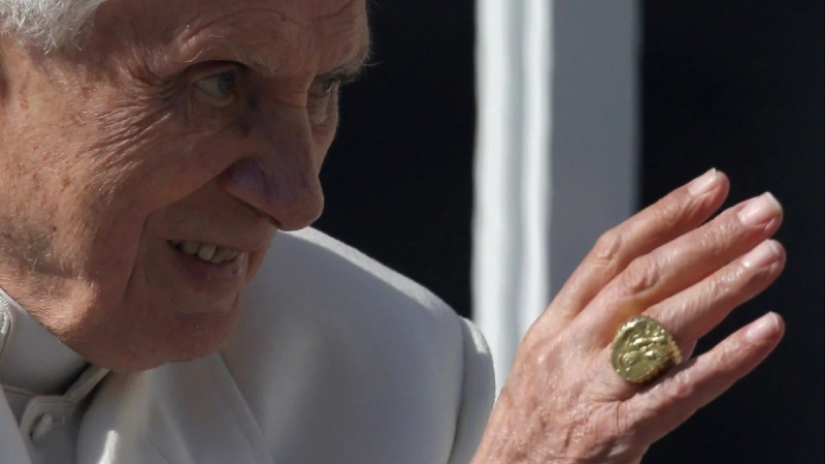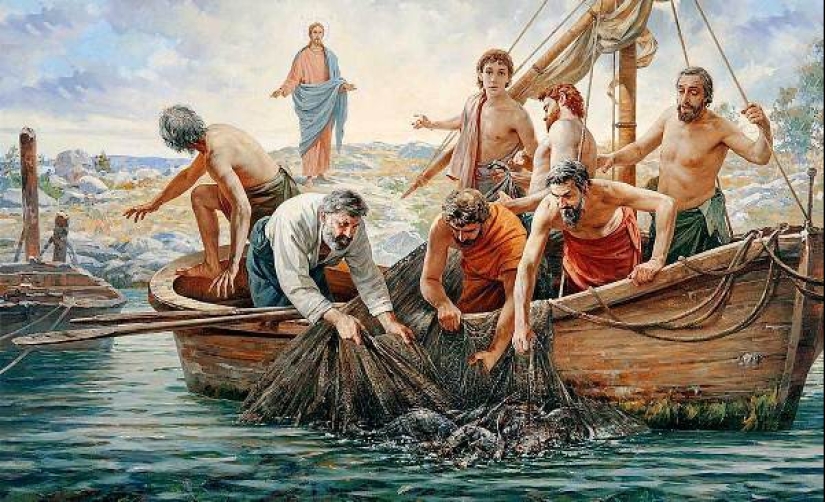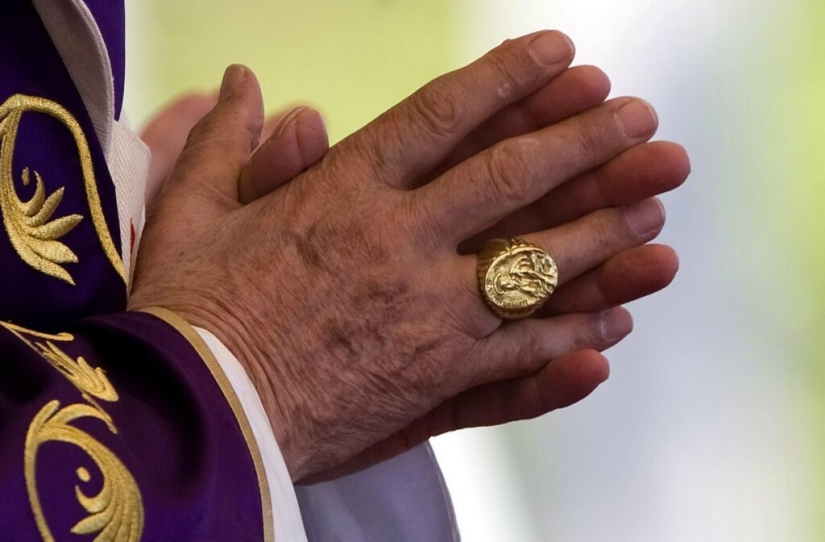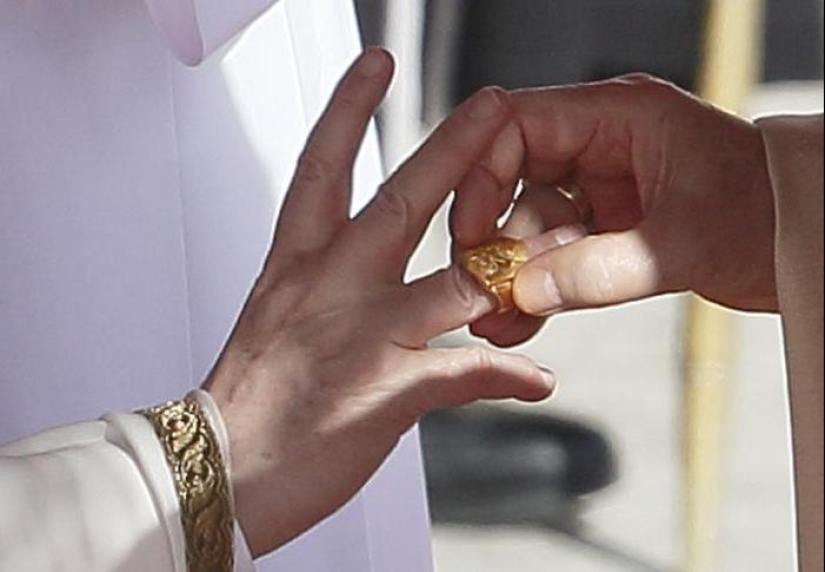Why is the pope's ring called the "Fisherman's Ring" and what is its secret
The "Ring of the Fisherman" is an essential attribute of papal vestments, no less important than the tiara. It is not passed from one pontiff to another, but is made for each pope individually. What secrets does this symbol of the papacy hide, and why is it called the “Ring of the Fisherman” and not otherwise?

The head of the Catholic Church is considered the heir of the Apostle Peter, one of the most faithful disciples of Christ. Before baptism, he was a simple fisherman, and the name of this profession began to be applied to him later as a metaphor. In Christianity, the apostle is considered the "catcher of human souls", who gathers sinners and instructs them on the true path.

As a follower of Peter, the Pope of Rome also catches human souls, preventing them from wallowing in the abomination of sins. That is why the papal ring was called the “Ring of the Fisherman”. It is decorated with the image of the cross and the Apostle Peter casting a net into the sea. But at the same time, the ring of each dad is unique. It is made for the new pontiff and decorated with initials.

Until 1842, the papal ring with his name served as a seal to certify letters and important documents. The "Ring of the Fisherman" was made of pure gold, and the dean of the College of Cardinals presents it to the elected pope during the coronation ceremony. At the same time, the head of the Catholic Church should reverently fall with his lips to the relic, as a sign of humility and respect for the great mission of the successor to the work of the Apostle Peter.

After the death or abdication of the pope, his ring is destroyed. Previously, this was done to prevent cardinals from forging seals on documents. Nowadays, when papers are no longer sealed with a ring, this is just an important tradition. The custom of destroying the ring, and then making it again, served as a reason to call it the “phoenix ring”.
The Fisherman's Ring was first mentioned in a letter written by Pope Clement IV in 1265. Since then, the reverent attitude towards the ring among the high officials of the Vatican has not changed at all. But something interesting did happen. In 2013, Pope Francis, assuming the highest priesthood, wished that the ring was not made of gold.

For this, the pontiff's ring was cast from silver and covered with gilding. This was done not for any special reasons, but for the sake of simple economy. But whatever material is used, the "Ring of the Fisherman" is invaluable as one of the symbols of the papacy.

In 2006, Pope Benedict XVI nearly lost the relic twice in one day. It happened in the Italian city of Verona during a meeting with believers on the football field. The ring fell off the pontiff's finger twice during handshakes with Catholics. Each time the ring was returned to its owner.
Recent articles

It's high time to admit that this whole hipster idea has gone too far. The concept has become so popular that even restaurants have ...

There is a perception that people only use 10% of their brain potential. But the heroes of our review, apparently, found a way to ...

New Year's is a time to surprise and delight loved ones not only with gifts but also with a unique presentation of the holiday ...